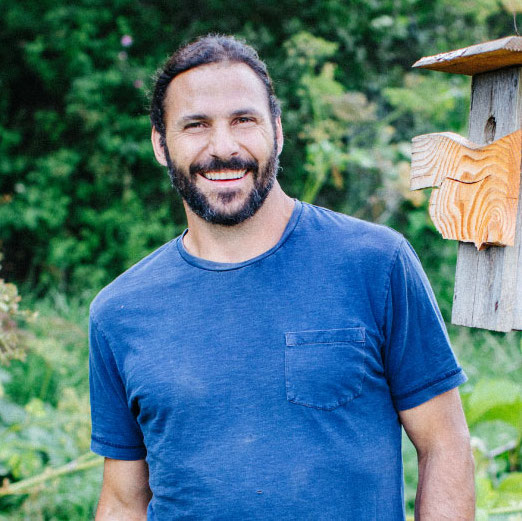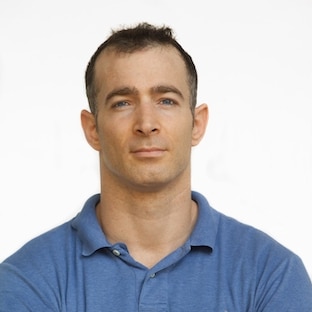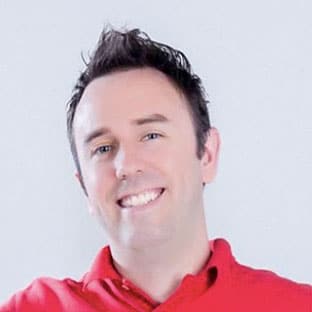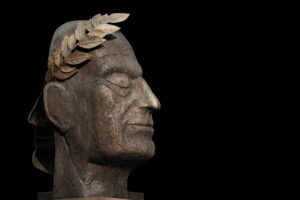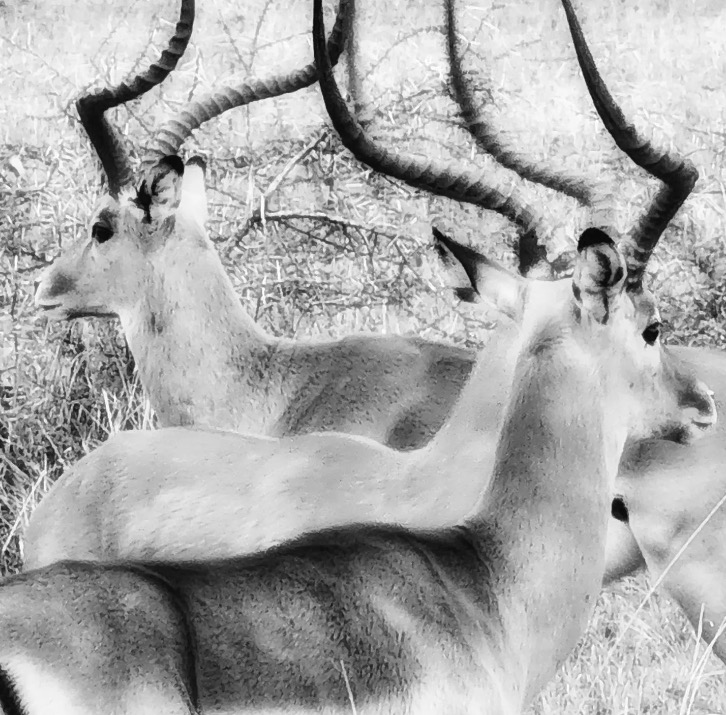
What You'll Learn...
- Learn why stepping out of your comfort zone is essential for personal and professional growth, especially for founders.
- Understand how adventures can teach resilience, creativity, and the joy of overcoming challenges—qualities that mirror the journey of a successful founder.
- Practical steps on how to create your own adventures that can reshape your mindset, enhance your creativity, and improve your leadership and problem-solving skills.
Today’s instant gratification is lulling us to sleep
Most of us can place an online order and get things delivered to our doorstep in hours.
We can google any question and get an instant, detailed answer using a device in our back pocket.
We don’t even need to visit friends in person anymore. In seconds, we can just hop on a video call. Or scroll through a highlight reel of that person’s life.
Technology today makes life easy, fast, and convenient. The problem is, with unrestrained access to anyone and everything, life can get boring.
How creative have you felt lately?
Are you pushing forward or just going through the motions, relying on what’s comfortable and known?
How alive do you feel?
Waking up every day to the same routine, the same challenges, the same victories. It’s comfortable, but it’s also… predictable. Where’s the growth in that?
Where’s the fire that gets us to leap out of bed in the morning, hungry for what life might bring?
For us founders, it’s even more critical to stay awake and nimble. Running a business isn’t just about managing operations, finances, or marketing. It’s about managing chaos. It’s about thriving in uncertainty. And what better way to train for this than by heading off on an adventure?
I define an adventure as the anticipation of the unknown. I believe true adventure begins where your comfort zone ends.
Think about it. Adventures force us to confront our fears, to adapt to unforeseen circumstances, to solve problems on the fly. They teach us resilience, creativity, and the sheer joy of overcoming obstacles. These are the same qualities that define successful founders.
The adventure
When I was 19, I booked a trip to Ecuador, thinking I would backpack there for just a few weeks. I ended up staying for eight months after an indigenous Kichwa family took me in (after I had run out of money).
For the next few years, I kept returning to the country. I learned the area and the culture, kept exploring, and eventually I built an entire career out of going on adventures, even leading to my show on National Geographic.
Let me tell you a little story about an adventure I took, five years after my first trip to Ecuador.
For five years, I’d been operating a guiding business out of Ecuador. And business was great. But I’d heard stories of more remote places with new people and wilder animals.
And I wanted to see those places. Isn’t that the essence of adventure? The drive to discover, to push beyond the boundaries of our everyday lives?
I have to admit, I got a little selfish here. I wanted to organize a trip down a river in Ecuador that no one had ever gone down. All paid for by the people who hired me to be their guide.
Remember, this was deep in the jungles of Ecuador, bordering Peru. Completely uncharted territory.
I organized this trip with my best friend and a couple of local Huaoranis, the indigenous people in this area. Twelve tourists joined. They were excited about the trip, but they didn’t have any real experience in the jungle.
We hiked to the border using a compass and a little hunting trail. We found the river we were looking for. Then, we built five balsa rafts to carry ourselves and our gear across.
But on the very first day, we only made it 350 feet.
Fallen trees across the river blocked our path, which we had to chop through with axes. Worse, the tourists were prone to injury because they were out of their comfort zone. All of us were blistered from the work required to cut the trees to make the rafts.
The next day, we made it about a quarter of a mile. And the next day, even further.
Progress!
But we knew that we weren’t moving fast enough. This was No Man’s Land. There were no 7-11’s, no hospitals, no phones. We had limited resources to get us to our takeout point.
Then we saw the canoe.
I define an adventure as the anticipation of the unknown. I believe true adventure begins where your comfort zone ends.
Unexpected company
Down the river paddling toward us was a canoe full of Huaoranis, and they were as shocked to see us as we were to see them. Fortunately, we befriended them, and they invited us to stay with their community.
At this point, I’d been around Ecuador for a lot of years. So once we got to the village, I saw familiar faces, locals I hadn’t seen in years. One of these locals was a chief named Unya—a particularly aggressive chief who was banished from some of the other communities. We stayed in his community for two nights—sharing food, playing with the Huaorani kids, and singing songs together.
Everyone was having a wonderful time, everyone except Unya.
You see, the Huaorani people have a history of being targeted by oil companies. There’s oil underneath their land, and time and time again, oil companies came in, offered presents, gained their trust, and then took their land. So for Unya, who had been around to see this, he was kind but uneasy.
After those two nights, we planned to keep moving. But before we left, Unya (who believed all foreigners had money) demanded we pay him for the time we had stayed with his people.
Huaoranis are notoriously aggressive. Knowing not to upset him, we asked him how much he needed.
“Seven dollars,” he said.
I exhaled in relief. I had a $5 bill and two $1 bills, which I gave him.
Unfortunately, Unya seemed frustrated. He started talking in his language with other people. He came back, “Nine dollars.”
So we gave him an additional couple of bills. But again, he was frustrated. Unya’s demands increased—from $9 to $23 to $78—as the figure increased.
I realized what was happening. Unya had never learned how to count. He didn’t understand what a $5 bill was. But try explaining how numbers work to a hotheaded, 45-year-old ultra-warrior chief. (I’ll tell you a secret: it won’t go well.)
And it didn’t. Finally, Unya said something to the others in the Huaorani language, which I understood.
“We will kill them now,” he said.
The escape
Unya ran into his shack to get his gun. He rallied some of the younger men, who also grabbed their muzzleloaders.
I looked at my clients with a surge of panic.
My big adventure had officially derailed. I was responsible for these twelve people and there was a good chance we were all going to die. I had to get them out of there without setting off panic.
So, calmly, I told everybody we had to go now.
The rest of the community knew we were going to die, so they started stealing stuff. Clothes, gear, tents, they’d just walk off with it. The clients were clueless as to what was happening, “That’s my REI tent, can you tell them to be careful with it?” and I said, “Doesn’t matter, put on your boots, we’re going.”
I quickly led my group into the jungle. Unya followed behind us with his muzzleloader and his spear, yelling the whole time. The clients, oblivious, asked me, “Can he quiet down? He’s scaring the wildlife.” They had no idea that he was trying to kill us.
He was angry at me specifically, so I kept moving through the trees in a zig-zag pattern while directing the group forward. Eventually, he disappeared, but I knew that as soon as we camped, they’d kill us in our sleep.
We marched without stopping for 3 days. Our only hope was to find Block 16.
Block 16 was a top-secret area located in the nearby national park, run by the military and an oil company. I knew its general direction, but if we missed it, we’d be in the jungle for weeks.
After slogging through the jungle, we could hear the loud rumbling of some generators. Soon we saw a road and a tall barbed wire fence.
The employees were so startled to see us—this was an illegal operation—that they called their friends to come in and talk to us. They were floored that people could survive out in that jungle.
Relieved beyond belief, I told them about our situation and asked them to give us a ride.
Their faces fell.
“No way,” they said. We were not supposed to know this place was there. After some pleading, they said they’d go get their bosses, but it wouldn’t be a good thing.
By this point, I was desperate. I had taken my group, who trusted me, into an extremely dangerous situation.
When they all returned, they had a military-type convoy with them. People in military gear poured out of the trucks.
And they told us to go back into the jungle.
We pleaded and begged for them to take us out of there, and eventually some guys piled us into a covered Land Cruiser without windows and took all our cameras and film. After an entire day of traveling blindfolded, we were dropped off on the side of a river and made our way home.
Join "Tales From The Tub"
Newsletter Opt-In
How to go on an adventure
As you can probably tell by now, my trip to the border wasn’t exactly a high point in my guiding career.
But I grew wiser from it. I became better at problem-solving. I became better at identifying risks and mitigating those risks. And I developed such a deep connection with those clients that I’m still in touch with many of them.
Would I repeat this adventure? Obviously not.
Did it change me for the better? Absolutely.
Adventures are incredible tools for breaking your mindset and reshaping the way you think. They teach you to embrace uncertainty and to find joy in the journey, not just the destination. They force you to think on your feet, when the path is blocked, you find another path. They help you see the world in a whole new way.
And here’s the good news, most adventures don’t end blindfolded in the back of a truck.
I do think every good adventure includes uncomfortableness, unknowns, and rough patches. And I believe that these rough patches shake you awake and break you out of your rut.
Wouldn’t your life be better if you had a broader view of the world? Wouldn’t you be a better leader, partner and friend?
Let’s get you on your own adventure.
Step 1: Leave your comfort zone
Carve out a time and method of travel to go to an area you’re intrigued by, someplace you’re into but don’t know completely. Don’t make the mistake of over-planning the trip, either. Business is full of unknowns. An adventure, by my definition, is a trip in which you embrace the unknown.
Yeah, it might not be as plush as your typical Club Med resort. But that’s the point.
Don’t book an Airbnb or plan every landmark you’ll see. Just be there, and be open to the universe. Find a new place to stay every night. Eat somewhere just because it smelled good as you were walking by. Go to a show because you saw the poster on a light pole. Be curious.
Step 2: Engage with the local culture
Dive deep into the culture of the place. Talk to the people. Learn their stories. There’s so much richness in understanding how others live, their struggles, their joys. Eat what they eat, go where they go, and if possible, live how they live, even if it’s just for a few days.
This step will help you question your long-held beliefs about how life is supposed to work.
Adventures are incredible tools for breaking your mindset and reshaping the way you think. They teach you to embrace uncertainty and to find joy in the journey, not just the destination. They force you to think on your feet, when the path is blocked, you find another path. They help you see the world in a whole new way.
Step 3: Take on a challenge
Find something challenging to do while you’re there.
It could be climbing a mountain, navigating a maze of city streets without a map, or even trying to start a small project with locals. The point is, it should be something that tests your limits and pushes you to think creatively.
This is where growth happens.
When you’re faced with a challenge in an unfamiliar environment, you learn to adapt, to find solutions, and to overcome obstacles. This will help you build confidence and resilience, traits every founder needs.
Step 4: Write it down
Once your adventure is over, you have to write about it. How did the experience change you? What new perspectives have you gained? How can you apply these lessons to your life and business?
Remember, the goal of an adventure isn’t just to have fun (though that’s a big part of it); it’s to grow. It’s to come back a better, more well-rounded person and leader.
Write down your thoughts, discuss them with friends or mentors, and then see how you can use these new insights in your daily life and work.
And then plan the next one.
Bonus Step: Bring someone along
Teams emerge stronger from an adventure, especially if that adventure goes awry. Think back on all the adventures you went on when you were younger. Maybe it was your first month of college. Maybe it was a trip with some friends across the country.
Now, think about how those adventures impacted your relationships. Most of the time, it brought you closer together right?
If you want to get closer to the people you work with, invite them to travel with you.
Now go on your own adventure
I encourage everyone—founders or not—to be lifelong adventurers. Adventures are essential to a well-lived life!
They help you challenge the status quo, not just in the world, but within yourself. They remind us that the world is bigger than our problems, that we are capable of overcoming great challenges, and that life, at its core, is an adventure worth embracing.
-
A Kootenai and Salish Native American by descent, Hazen was born and raised in Spokane, Wash., where he still lives much of the year when he’s not filming. Hazen holds a Bachelor of Science in Biology from Western Washington University. He has studied Botany and Zoology at Eastern Washington University and Northwest Indian College, and he has done advanced studies in Tropical Ecology at the University of Hawaii. He speaks four languages, including English, Spanish, Bahasa, and Quichua. From a young age, Hazen has loved plants and animals, but it was the biodiversity of the rainforest in South America that fascinated him the most. At 18, right after graduating high school, Hazen moved to the rainforest in Ecuador and started a guiding business as a way to support himself while he went to college. He ended up falling even more in love with the rainforest than he ever could’ve imagined and returned every summer for ten years. It wasn’t long before he realized that he had a true gift for understanding and explaining the landscape. Educating came naturally to him, especially when he was sharing knowledge of a subject he was truly passionate about. After college, Hazen became a high school biology teacher where he used his own experiences to teach his students about biology and science in a manner that was exciting and natural. Hazen's teaching style has always been to educate through adventure.
View all posts

